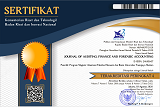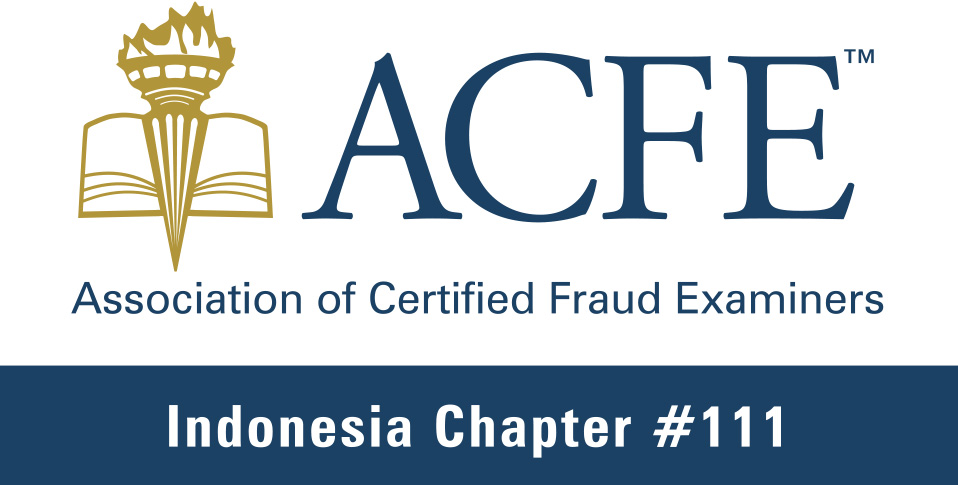Trend Analysis and Research Opportunities in Artificial Intelligence Ethics for Fraud Detection
Abstract
This study provides a bibliometric analysis of ethical considerations in AI applications for fraud detection based on data from ScienceDirect spanning 2020 to 2024. The analysis identifies “artificial intelligence” as a core focus in the literature, alongside a marked increase in attention to ethical concerns, including data privacy, transparency, and accountability. Additionally, the study reveals progress in applying advanced technologies like blockchain, ChatGPT, and fintech within fraud detection frameworks, which increasingly demand ethical scrutiny. Key findings emphasize the necessity for comprehensive ethical frameworks to ensure transparency, accountability, and public trust in AI-driven fraud detection systems. Practical implications suggest that organizations should prioritize ethical dimensions within AI strategies, enhancing both trust and the effectiveness of detection mechanisms. By using bibliometric analysis, this study finds new trends and gaps in the ethical aspects of using AI to find fraud, which adds new information that hasn’t been fully explored in other studies.
Keywords
Full Text:
PDFReferences
Abakah, E. J. A., Tiwari, A. K., Ghosh, S., & Doğan, B. (2023). Dynamic Effect of Bitcoin, Fintech and Artificial Intelligence Stocks on Eco-Friendly Assets, Islamic Stocks and Conventional Financial Markets: Another Look Using Quantile-Based Approaches. Technological Forecasting and Social Change, 192, 122566. https://doi.org/10.1016/j.techfore.2023.122566.
Agrawal, J., Kalra, S. S., & Gidwani, H. (2023). AI in Cyber Security. International Journal of Communication and Information Technology, 4(1), 46–53. https://doi.org/10.33545/2707661x.2023.v4.i1a.59.
Arnold, Z., Schiff, D. S., Schiff, K. J., Love, B., Melot, J., Singh, N., Jenkins, L., Lin, A., Pilz, K., Enweareazu, O., & Girard, T. (2024). Introducing the AI Governance and Regulatory Archive (AGORA): An Analytic Infrastructure for Navigating the Emerging AI Governance Landscape. Proceedings of the AAAI/ACM Conference on AI, Ethics, and Society, 7(1 SE-Full Archival Papers), 39–48. https://doi.org/10.1609/aies.v7i1.31615.
Bharadiya, J. P., Thomas, R. K., & Ahmed, F. (2023). Rise of Artificial Intelligence in Business and Industry. Journal of Engineering Research and Reports, 25(3), 85–103. https://doi.org/10.9734/jerr/2023/v25i3893.
Bunget, O.-C., & Lungu, C. (2023). A Bibliometric Analysis of the Implications of Artificial Intelligence on the Accounting Profession. CECCAR Business Review, 4(5), 65–72. https://doi.org/10.37945/cbr.2023.05.07.
Chen, C. (2023). Investigation into the Development of Intelligent Financial Management Systems Based on Artificial Intelligence. Advances in Economics and Management Research, 1(3), 429-436. https://doi.org/10.56028/aemr.3.1.429.
Collins Kindzeka, K. (2023). Impact of Artificial Intelligence on Accounting, Auditing and Financial Reporting. American Journal of Computing and Engineering, 6(1), 29–34. https://doi.org/10.47672/ajce.1433.
Constantinides, M., Bogucka, E., Quercia, D., Kallio, S., & Tahaei, M. (2024). RAI Guidelines: Method for Generating Responsible AI Guidelines Grounded in Regulations and Usable by (Non-)Technical Roles. Proceedings of the ACM on Human-Computer Interaction, 8(CSCW2), 1-28. https://doi.org/10.1145/3686927.
Denault, V., Plusquellec, P., Jupe, L. M., St-Yves, M., & Dunbar, N. E., … van Koppen, P. J. (2020). The Analysis of Nonverbal Communication: The Dangers of Pseudoscience in Security and Justice Contexts. Anuario de Psicología Jurídica, 30(1), 1–12. https://doi.org/10.5093/apj2019a9.
Dwivedi, Y. K., Kshetri, N., Hughes, L., Slade, E. L., Jeyaraj, A., Kar, A. K., Baabdullah, A. M., Koohang, A., Raghavan, V., Ahuja, M., Albanna, H., Albashrawi, M. A., Al-Busaidi, A. S., Balakrishnan, J., Barlette, Y., Basu, S., Bose, I., Brooks, L., Buhalis, D., ... Wright, R. (2023). Opinion Paper: “So what if ChatGPT wrote it?” Multidisciplinary perspectives on opportunities, challenges and implications of generative conversational AI for research, practice and policy. International Journal of Information Management, 71, 1-63. https://doi.org/10.1016/j.ijinfomgt.2023.102642.
Fedyk, A., Hodson, J., Khimich, N., & Fedyk, T. (2022). Is Artificial Intelligence Improving the Audit Process? Review of Accounting Studies, 27, 938–985. https://doi.org/10.1007/s11142-022-09697-x.
Fisher, E. J. P., & Fisher, E. (2023). A Fresh Look at Ethical Perspectives on Artificial Intelligence Applications and Their Potential Impacts at Work and on People. Business and Economic Research, 13(3), 1-22. https://doi.org/10.5296/ber.v13i3.21003.
Ghouri, A. M., Khan, H. R., Mani, V., Haq, M. A. ul, & Lopes de Sousa Jabbour, A. B. (2023). An Artificial-Intelligence-Based Omnichannel Blood Supply Chain: A Pathway for Sustainable Development. Journal of Business Research, 164, 113980. https://doi.org/https://doi.org/10.1016/j.jbusres.2023.113980.
Han, Y., Chen, J., Dou, M., Wang, J., & Feng, K. (2023). The Impact of Artificial Intelligence on the Financial Services Industry. Academic Journal of Management and Social Sciences, 2(3), 83–85. https://doi.org/10.54097/ajmss.v2i3.8741.
Ikhsan, W. M., Ednoer, E. H., Kridantika, W. S., & Firmansyah, A. (2022). Fraud Detection Automation Through Data Analytics and Artificial Intelligence. Riset:Jurnal Aplikasi Ekonomi, Akuntansi dan Bisnis, 4(2), 103–119. https://doi.org/10.37641/riset.v4i2.166.
Indriani, P. (2025). Peran Artificial Intelligence dalam Akuntansi: Analisis Bibliometrik. AKADEMIK: Jurnal Mahasiswa Ekonomi & Bisnis, 5(1), 436-443. https://doi.org/10.37481/jmeb.v5i1.1213.
Judijanto, L., Destiana, R., Sudarmanto, E., &Vandika, A. Y. (2024). Analisis Bibliometrik Perkembangan Teknologi dan Inovasi dalam Digital Banking. Jurnal Ekonomi dan Kewirausahaan West Science, 2(3), 315-328. https://doi.org/10.58812/jekws.v2i03.1431.
Kim, C., Park, J. H., & Lee, J. Y. (2024). AI-Based Betting Anomaly Detection System to Ensure Fairness in Sports and Prevent Illegal Gambling. Scientific Reports, 14(1), 1–19. https://doi.org/10.1038/s41598-024-57195-8.
Lami, B., Mohd. Hussein, S., Rajamanickam, R., & Emmanuel, G. K. (2024). The Role of Artificial Intelligence (AI) in Shaping Data Privacy. International Journal of Law and Management, 0242. https://doi.org/10.1108/IJLMA-07-2024-0242
Lupo, G. (2023). Risky Artificial Intelligence: The Role of Incidents in the Path to AI Regulation. Law, Technology and Humans, 5(1), 133–152. https://doi.org/10.5204/lthj.2682.
Malladhi, A. (2023). Artificial Intelligence and Machine Learning in Forensic Accounting. International Journal of Computer Science and Engineering, 10(7), 6–20. https://doi.org/10.14445/23488387/ijcse-v10i7p102.
Mehak, M., Kumar, R., & Mehta, A. (2023). Artificial Intelligence. International Journal of Advanced Research in Science, Communication and Technology, 3(7), 20–30. https://doi.org/10.48175/ijarsct-9466.
Mytnyk, B., Tkachyk, O., Shakhovska, N., Fedushko, S., & Syerov, Y. (2023). Application of Artificial Intelligence for Fraudulent Banking Operations Recognition. Big Data and Cognitive Computing, 7(2), 1-19. https://doi.org/10.3390/bdcc7020093.
Oktavianto, R., & Hardini, E. N. S. (2024). A Comprehensive Study of Artificial Intelligence on Financial Analysis: A Bibliometric Analysis. Nominal: Barometer Riset Akuntansi dan Manajemen, 13(1), 98-117. https://doi.org/10.21831/nominal.v13i1.66248.
Owonifari, V. O., Igbekoyi, O. E., Awotomilusi, N. S., & Dagunduro, M. E. (2023). Evaluationof Artificial Intelegence and Efficacy of Audit Practice in Nigeria. Asian Journal of Economics, Business and Accounting, 23(16), 1–14. https://doi.org/10.9734/ajeba/2023/v23i161022.
Page J., M., McKenzie, J. E., Bossuyt, P. M., Boutron, I., Hoffmann, T. C., Mulrow, C. D., Shamseer, L., Tetzlaff, J. M., Akl, E. A., Brennan, S. E., Chou, R., Glanville, J., Grimshaw, J. M., Hróbjartsson, A., Lalu, M. M., Li, T., Loder, E. W., Mayo-Wilson, E., McDonald, S., … Moher, D. (2021). The PRISMA 2020 statement: An updated guideline for reporting systematic reviews. The BMJ, 372. https://doi.org/10.1136/bmj.n71.
Pattnaik, D., Ray, S., & Raman, R. (2024). Applications of Artificial Intelligence and Machine Learning in the Financial Services Industry: A Bibliometric Review. Heliyon, 10(1), 1-19. https://doi.org/10.1016/j.heliyon.2023.e23492
Pratt, R., & Otero, A. R. (2024). Assessing the Integration Of ChatGPT in It Audits That Support Financial Statement Audits. International Journal of Advanced Information Technology (IJAIT), 14(4), 1-15. https://doi.org/10.5121/ijait.2024.14401.
Pulijala, S. (2024). Artificial Intelligence in Governance: Opportunities , Challenges , and Ethical Implications for Public Administration. International Journal for Multidisciplinary Research (IJFMR), 6(6), 1–10. https://doi.org/10.36948/ijfmr.2024.v06i06.29990.
Rerung, A., Paranita, E. S., AY, R. A. A., Salamah, F., & Tandililing, E. M. (2024). The Influence of Fintech Innovations, ESG Reporting, and Blockchain Technology on Financial Transparency and Accountability. The Journal of Academic Science, 1(2), 103–110. DOI:10.59613/fb73ds14.
Syahputri, R. D., Anggono, A., Prasetyono, P., & Djasuli, M. (2024). Evolution and Research Opportunities of Digital Forensic Tools: A Bibliometric Analysis. CogITo Smart Journal, 10(2), 474–485. https://doi.org/10.31154/cogito.v10i2.675.474-485.
Ruchay, A., Feldman, E., Cherbadzhi, D., & Sokolov, A. (2023). The Imbalanced Classification of Fraudulent Bank Transactions Using Machine Learning. Mathematics, 11(13), 1–15. https://doi.org/10.3390/math11132862.
Sahoo, M. (2024). Ethics in AI – Critical Skills for the New World. ADIPEC, Abu Dhabi, UAE, November 2024. https://doi.org/10.2118/222249-MS.
Shen, W., & Liu, Y. (2022). China’s Normative Systems for Responsible AI: From Soft Law to Hard Law. In: Voeneky S, Kellmeyer P, Mueller O, Burgard W, eds. The Cambridge Handbook of Responsible Artificial Intelligence: Interdisciplinary Perspectives. Cambridge Law Handbooks. Cambridge University Press, 150–166.
Solikin, I., & Darmawan, D. (2023). Impact of Artificial Intelligence in Improving the Effectiveness of Accounting Information Systems. Journal of Wireless Mobile Networks, Ubiquitous Computing, and Dependable Applications, 14(2), 82–93. https://doi.org/10.58346/JOWUA.2023.I2.007.
UNESCO. (2021). The Ethics of Artificial Intelligence. UNESCO. https://doi.org/10.7551/mitpress/14102.003.0010.
UNESCO. (2023). Key facts UNESCO ’ s the Ethics of Artificial Intelligence. UNESCO.
DOI: https://doi.org/10.21107/jaffa.v12i2.28740
Refbacks
- There are currently no refbacks.
Our Journal indexed by:
Our support tools using:



This work is licensed under a Creative Commons Attribution 4.0 International License.












